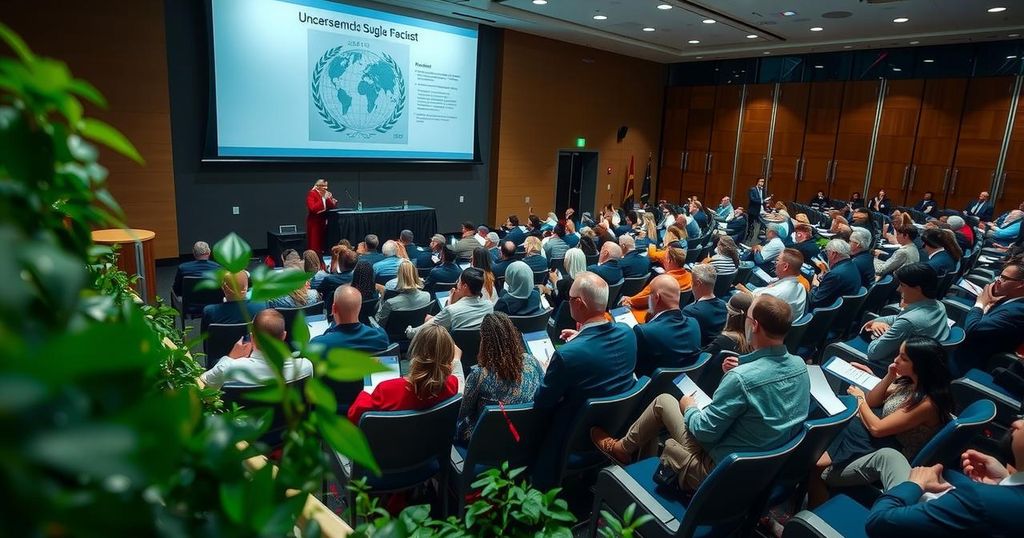Negotiations at the UN climate talks in Baku face significant challenges reminiscent of past failures in climate conferences. Historical instances, such as COP6 in The Hague and COP15 in Copenhagen, highlight the difficulties in reaching agreements due to disputes over commitments and the need for consensus among nations. More recently, COP16 on biodiversity also ended without key resolutions, emphasizing the persistent struggles within international environmental negotiations.
In Baku, negotiations at the UN climate talks were fraught with difficulties, reflecting a long history of failure at such conferences. Since their inception in 1995, numerous UN climate summits have witnessed significant disagreements, with the COP6 in The Hague in 2000 being notable for its suspension amid disputes related to U.S. elections and climate policies. As negotiators grappled with issues of land use credits under the Kyoto Protocol, the eventual election of George W. Bush, a skeptic of climate agreements, stirred some unexpected actions among other nations willing to pursue climate measures.
The shadow of previous failures looms particularly large over COP15 in Copenhagen in 2009, which was marked by high expectations but ultimately disappointment. Leaders, including President Obama, aimed to forge a binding agreement, yet the summit fell victim to infighting, primarily between the United States and China, culminating in an ambiguous accord rather than robust emission commitments. Moreover, significant logistical challenges plagued the event, frustrating delegates further and leading to a lack of agreement on key topics.
More recently, the biodiversity COP16 in Cali, Colombia ended without achieving consensus on necessary funding to protect natural environments, with various delegates departing before discussions could resume. As Colombia plans to reconvene discussions in early 2025, the repeated failures at these environmental summits highlight the uphill battle in reaching effective international consensus on climate and biodiversity issues.
The recurrent failures of UN climate conferences reveal the deep-rooted challenges faced in global climate negotiations. Since the establishment of the first UN climate summit in 1995, significant disagreements have arisen among participating nations, often stalling or halting progress altogether. Historical events, such as COP6 in The Hague and COP15 in Copenhagen, serve as stark reminders of the complexities inherent in achieving international climate agreements. The need for consensus among diverse nations with varying interests further complicates these negotiations, often leading to unresolved conflicts and unmet objectives.
The ongoing struggles at UN climate and biodiversity conferences underscore the difficulty of achieving unified global commitments on environmental issues. Historically, pivotal moments such as COP6 and COP15 illustrate the inadequacy of efforts to forge sustainable agreements amid competing interests and heightened political tensions. As the international community prepares for future meetings, the imperative for effective dialogue and cooperation remains more critical than ever in addressing urgent climate challenges. The failures witnessed thus far serve as calls to action for all stakeholders involved.
Original Source: www.rfi.fr






